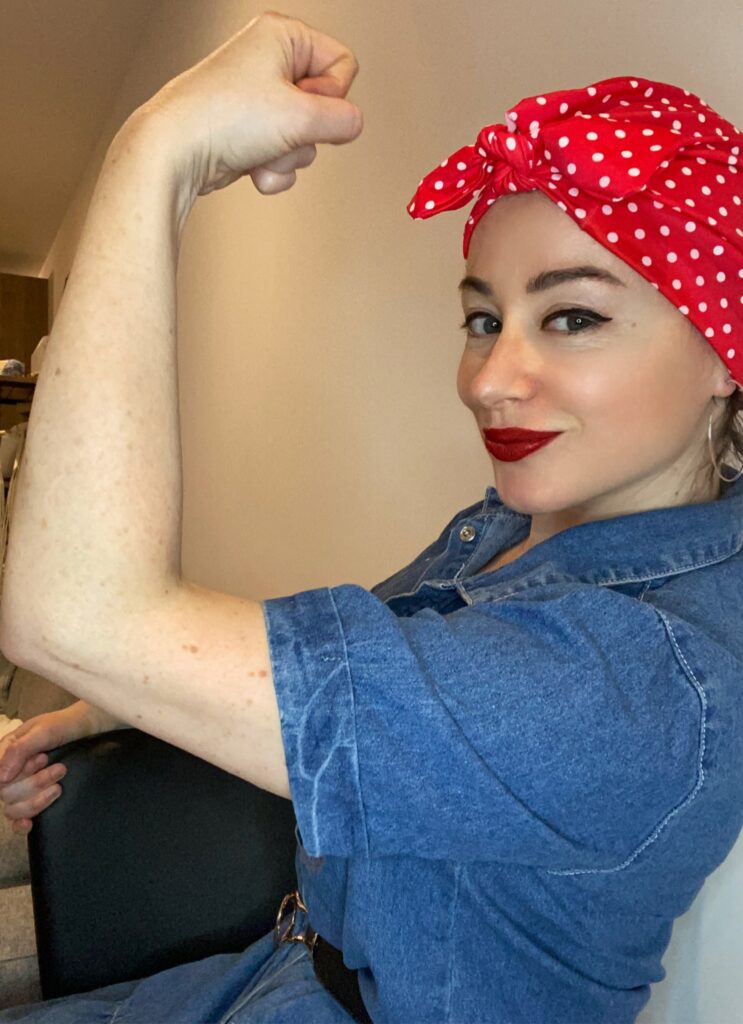Natalie, 39 from London was diagnosed with Stage 4 bowel cancer at the age of 36. The cancer had grown extensively and even after intense chemotherapy and radiotherapy treatments, she ended up undergoing Pelvic Exenteration surgery, which left her with damage to her bladder and ureters and needing to use catheters.


Natalie, thanks for talking to the Bladder and Bowel Community…
Can you tell us how you came about your pelvic exenteration surgery?
I was diagnosed with stage 4 cancer in my bowel, which was initially inoperable as it was growing into my spinal nerves. I went through an aggressive course or chemo and radiation which worked well, but my cancer started growing back really quickly after the first lot of treatment so I had to have a pelvic exenteration to remove everything the tumours were touching. They removed my ovaries, fallopian tubes, womb, cervix, vagina, rectum, anus, left piriformis, scraped out my pelvic sidewall bone, removed a section of my spine including spinal nerves and the cancer had also spread to my left ureter so they had to cut the cancer out and then stretch the remaining ureter and reimplant it into my bladder.
Did you need to use catheters straight over your surgery or did this happen some time after?
Because my bladder was cut and made smaller and was obviously manhandled due to the surgery, it suffered nerve damage and I had a permanent catheter for 2 months, part of which I had a ‘flip flow’ tap on it to try to get my bladder to learn how to fill and release again.
Following that I had a trial without a catheter but my bladder wouldn’t empty and I ended up with hydronephrosis (swelling of the kidneys) and had to have a permanent catheter back in. I then had to learn how to do intermittent self catheterisation so that I could properly drain the bladder and avoid further kidney issues. I have been doing intermittent self catheterisation ever since
We remember reading that you spent some time in hospital suffering with your kidneys and bladder, has this settled down over time now you’re using catheters?
The kidney issues have definitely settled down with the use of intermittent self catheterisation, I still have bladder issues due to the damage from surgery and the fact I had my pelvic floor cut in half but I’m managing it.
How does using catheters affect your day-to-day life?
It just means I have to be prepared when I leave the house. I get a lot more water infections and have had some quite bad UTIs, but on the whole I’m finding the catheters really manageable.
What type of catheters have you used to support your condition?
I use Coloplast speedicath
How did using catheters change things for you?
It meant I could get rid of my permanent catheter and spend less time in hospital which is always good!
I was horrified at having to use catheters at first as I have had some awful experiences of being catheterised in hospital but actually it was nowhere as bad as I thought! Even though my anatomy is slightly different down there following surgery I find it really manageable.
How do you feel about having to use catheters?
I was horrified at first as I have had some awful experiences of being catheterised in hospital but actually it was nowhere as bad as I thought! Even though my anatomy is slightly different down there following surgery I find it really manageable.
Do you think there’s enough help out there for those who use catheters in comparison to the advice given after stoma surgery?
I definitely don’t think there’s as much info as there is for stomas and I haven’t seen many people talk about it!
Do you receive any support/ help for your condition?
I have an amazing Macmillan nurse and also stoma nurses at my hospital, St Marks.
Are you able to work with your condition?
I am not able to do the work I did before cancer sadly, but I have some part time work from home that I am doing which is good as I can manage my issues around it.
Further Information
Navigating life with a catheter can feel overwhelming at times, which is why the Bladder and Bowel Community have launched a Catheter Care guide to help answer those tricky questions you may have. Follow the conversation on Social Media with #CatheterWeek and get involved with any comments you may have.
Download your Catheter Care Guide here.
If you use intermittent catheters, you may benefit from trying different types as some will suit you more than others. Lo Fric Elle Catheters are a type of self catheter designed for the female body, the discreet, slim design with a unique handle improves control, grip and hygiene.
To order your FREE sample, click here.









